What to Expect From The Kroger’s Upcoming Q4 Earnings Announcement?

Oppenheimer analysts provided their outlook on The Kroger Co. (NYSE:KR) ahead of the upcoming Q4 earnings release, scheduled on March 2.
The analysts expect another above-plan delivery and believe management could introduce guidance above the Street estimates. Their conservative full 2023-year EPS forecast of $4.30 remains above the Street estimate of $4.19.
According to the analysts, investor sentiment has waned toward the company lately amidst uncertainty on the approval of the ACI merger, a peaking food inflation cycle, and continued grocery share shifts to value channels.
The key focus of the call will be (1) Q4 results/2023 guide, (2) an update on the pending ACI merger, (3) a new e-commerce forecast amidst a slower shift in 2022, and (4) management’s food inflation expectations.
| Symbol | Price | %chg |
|---|---|---|
| 0LTM.L | 26.36 | 0 |
| AMRT.JK | 2140 | -0.47 |
| 3382.T | 1961.5 | 2.57 |
| 282330.KS | 105700 | 0 |
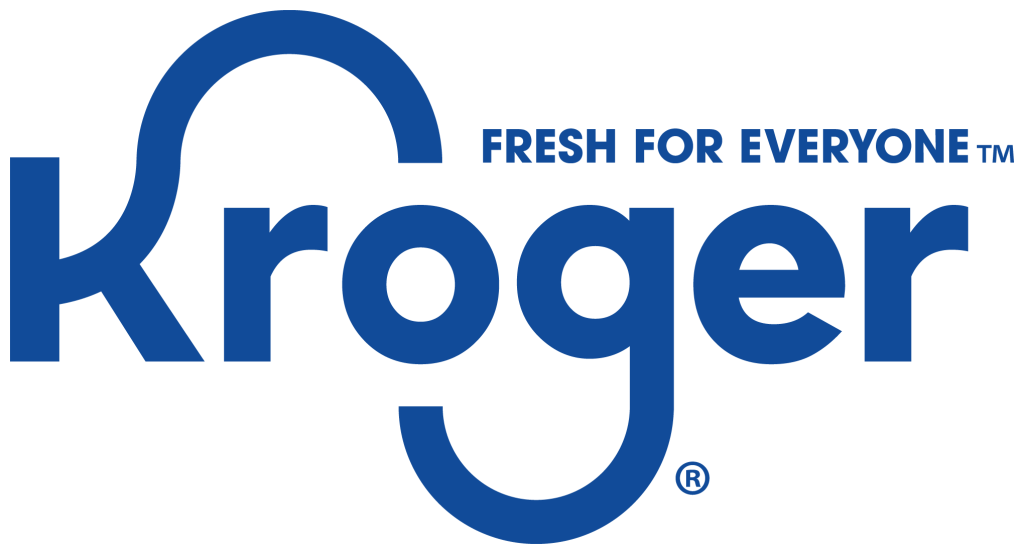
Kroger Co. (NYSE:KR) Introduces New Product to Boost Dallas-Fort Worth Market Presence
- Kroger Co. (NYSE:KR) is expanding its product range with the introduction of Rancher's Smokehouse Sausage in Dallas-Fort Worth stores.
- Argus Research sets a price target of $85 for Kroger, indicating a potential increase of 28.18%.
- Kroger's current market capitalization is approximately $43.36 billion, with a trading volume of 9.22 million shares today.
Kroger Co. (NYSE:KR) is a well-known American retail company that operates supermarkets and multi-department stores. It is one of the largest grocery retailers in the United States, offering a wide range of products including fresh food, household items, and pharmacy services. Kroger competes with other major retailers like Walmart and Costco.
Kroger is set to introduce Rancher's Smokehouse Sausage in its Dallas-Fort Worth (DFW) stores. This product launch is part of Kroger's strategy to diversify its offerings and appeal to a broader range of consumer preferences. By introducing new products, Kroger aims to draw more customers to its DFW locations, strengthening its market presence in the area.
On September 18, 2025, Argus Research set a price target of $85 for Kroger, as highlighted by TheFly. At that time, the stock was priced at $66.32, suggesting a potential increase of about 28.18%. This optimistic outlook reflects confidence in Kroger's growth strategies, including its product expansion efforts like the Rancher's Smokehouse Sausage launch.
Currently, Kroger's stock is priced at $65.58, experiencing a slight decrease of 0.62% today. The stock's trading range for the day was between $64.89 and $65.98. Over the past year, Kroger's stock has fluctuated between a high of $74.90 and a low of $54.88, indicating some volatility in its market performance.
Kroger's market capitalization stands at approximately $43.36 billion, reflecting its significant presence in the retail sector. With a trading volume of 9.22 million shares today, investor interest in Kroger remains strong. The company's efforts to expand its product offerings, like the new sausage launch, could further enhance its market position.
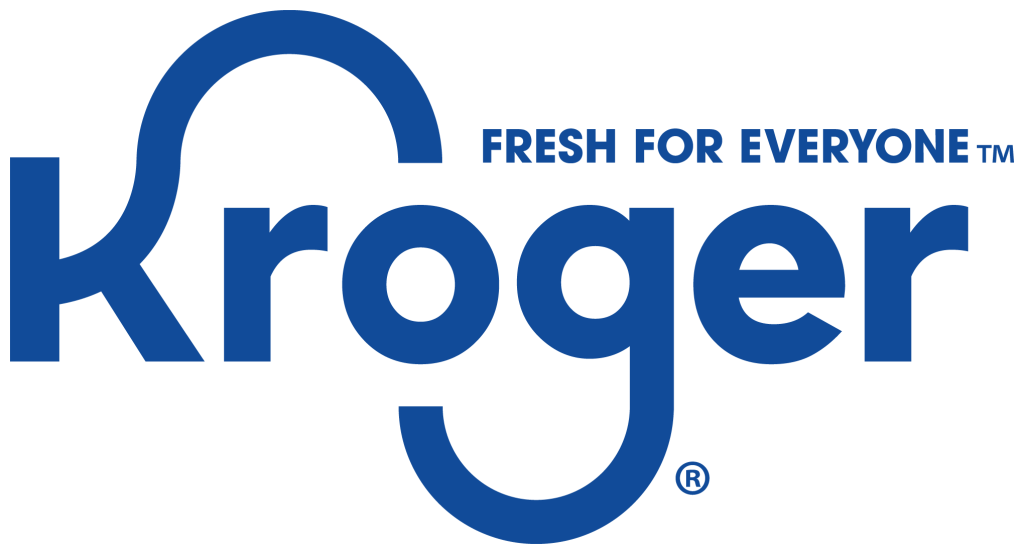
Kroger Co. (NYSE:KR) Stock Analysis: A Potential Growth and Value Investment
- Argus Research sets a price target of $85 for Kroger Co. (NYSE:KR), indicating a potential increase of 28.18%.
- Zacks Investment Research highlights Kroger as a strong value stock, suggesting it may be undervalued.
- Kroger's current stock price is $66.11, with a year's trading range between $54.56 and $74.90.
Kroger Co. (NYSE:KR) is a leading American retail company known for its supermarkets and multi-department stores. Competing with giants like Walmart and Costco, Kroger stands out in the United States as one of the largest grocery retailers, offering a wide array of products ranging from groceries and pharmaceuticals to general merchandise.
On September 18, 2025, Argus Research set a price target of $85 for Kroger, suggesting a potential price increase of approximately 28.18% from its then-current price of $66.32. This optimistic outlook underscores the growth potential of Kroger's stock, positioning it as an attractive investment opportunity within the retail sector.
Kroger has also been recognized as a strong value stock by Zacks Investment Research. The Zacks Style Scores system, which identifies top-rated stocks that match specific investing styles, currently favors Kroger for value-focused investors. This indicates that Kroger's stock might be undervalued, offering a promising opportunity for those in search of value investments.
As of now, Kroger's stock price stands at $66.11, experiencing a slight decrease of approximately 1.27% or $0.85. The stock has fluctuated between a low of $65.95 and a high of $66.76 today. Over the past year, the stock has seen a high of $74.90 and a low of $54.56, indicating some volatility in its price movements.
With a market capitalization of approximately $43.71 billion and a trading volume of 1,846,386 shares on the New York Stock Exchange, Kroger's substantial market cap and trading volume underscore its significant presence in the retail industry and its attractiveness to investors.
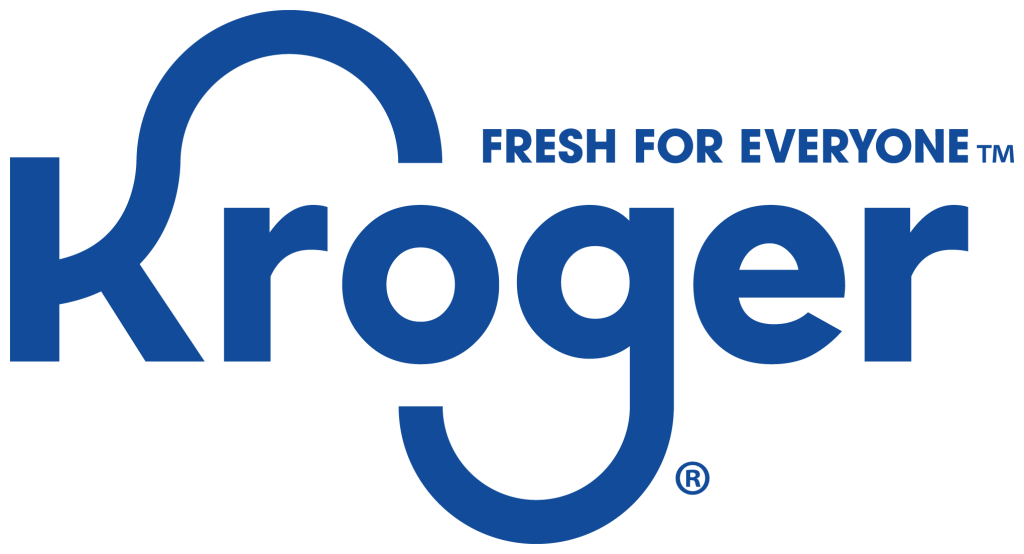
Kroger Co. (NYSE:KR) Surpasses Earnings Expectations with Strong E-commerce Growth
- Kroger Co. (NYSE:KR) reported an EPS of $1.04, beating estimates and highlighting its adaptability with significant e-commerce sales growth.
- The company's revenue was slightly below estimates at $33.94 billion, but it raised its fiscal year 2025 outlook due to strong grocery demand and growth in pharmacy and fresh produce segments.
- Kroger's financial metrics reveal a favorable market valuation with a P/E ratio of approximately 17.37, though its debt-to-equity ratio of 2.83 indicates high reliance on debt financing.
Kroger Co. (NYSE:KR) is a leading grocery retailer in the United States, known for its wide range of products and services, including fresh produce, pharmacy, and e-commerce. The company competes with other major grocery chains like Walmart and Costco. On September 11, 2025, Kroger reported earnings per share (EPS) of $1.04, surpassing the estimated EPS of $0.994.
Despite generating revenue of $33.94 billion, which was slightly below the estimated $34.10 billion, Kroger's performance in the second quarter of 2025 was impressive. The company experienced a significant surge in e-commerce sales, contributing to expanded profit margins. This growth in e-commerce highlights Kroger's ability to adapt to changing consumer preferences and capitalize on the increasing demand for online grocery shopping.
Kroger's strong performance has led to an upward revision of its fiscal year 2025 outlook. The company has raised its earnings outlook, driven by strong grocery demand and significant sales growth in its pharmacy and fresh produce segments. This positive development underscores Kroger's ability to meet consumer demand in key areas of its business, further solidifying its position in the competitive grocery market.
Financially, Kroger's metrics reflect its market valuation and operational efficiency. With a price-to-earnings (P/E) ratio of approximately 17.37, the market values Kroger's earnings favorably. The company's price-to-sales ratio of about 0.31 and enterprise value to sales ratio of around 0.45 suggest a relatively low market valuation compared to its revenue. However, the debt-to-equity ratio is notably high at approximately 2.83, indicating a significant reliance on debt financing.
Kroger's current ratio of around 0.95 suggests that the company has slightly less than enough current assets to cover its current liabilities. Despite this, Kroger's earnings yield of about 5.76% offers a return on investment based on its earnings, reflecting the company's ability to generate profits for its shareholders.
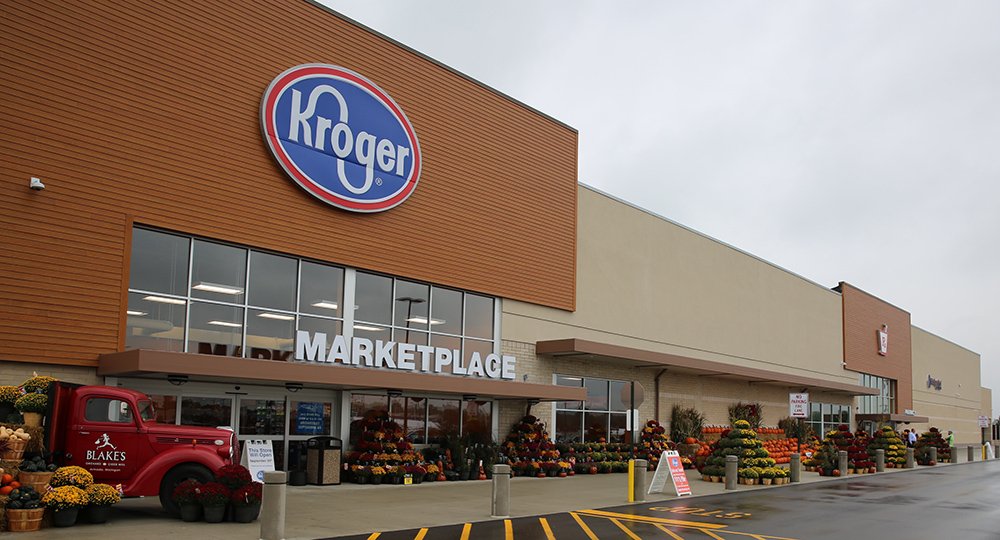
Kroger Co. (NYSE: KR) Quarterly Earnings Preview and Strategic Expansion
- Kroger Co. (NYSE:KR) is set to release its quarterly earnings with an anticipated EPS of $1 and revenue of $34.1 billion.
- The company is expanding its offerings to include wellness, beauty, and makeup products, aiming to cater to changing consumer preferences.
- Kroger's financial health remains robust with a price-to-earnings ratio of 17.37, indicating an attractive valuation compared to the sector median.
Kroger Co. (NYSE: KR) is a prominent American grocery retailer known for its wide range of products, including groceries, wellness, and beauty items. As the company prepares to release its quarterly earnings on September 11, 2025, Wall Street anticipates an earnings per share of $1 and revenue of approximately $34.1 billion. This release is crucial for investors and analysts who are keen to assess Kroger's financial health and market position.
Kroger is expanding its product offerings beyond groceries, introducing a new range of wellness, beauty, and makeup products. This strategic move aligns with the changing consumer preferences towards soft tones and warm scents, as highlighted by Kate Meyer, Vice President of Kroger Health and Beauty Care. By catering to these trends, Kroger aims to enhance its appeal and convenience for customers, potentially boosting its sales figures.
The company's focus on value-oriented shopping is timely, as consumers are increasingly seeking cost savings by eating out less. This shift benefits grocers like Kroger, which offers competitive pricing. Kroger's valuation remains attractive, with a price-to-earnings ratio of approximately 17.37, below the sector median. The company's consistent earnings per share growth and history of surpassing earnings expectations further bolster its financial outlook.
Despite a recent 5.2% decline in its stock price over the past four weeks, Kroger's technical indicators suggest a potential recovery. The formation of a hammer chart pattern indicates that the stock may have found support, with bullish investors counteracting bearish pressure. This pattern often signals a potential bottom and a possible trend reversal, offering hope for a stock price rebound.
Kroger's financial metrics provide additional insights into its market position. The company's price-to-sales ratio of about 0.31 and enterprise value to sales ratio of approximately 0.45 suggest a relatively low market valuation compared to its revenue. However, the high debt-to-equity ratio of 2.83 indicates a significant reliance on debt financing. Despite this, Kroger's earnings yield of 5.76% offers a return on investment relative to its share price, making it an attractive option for investors.
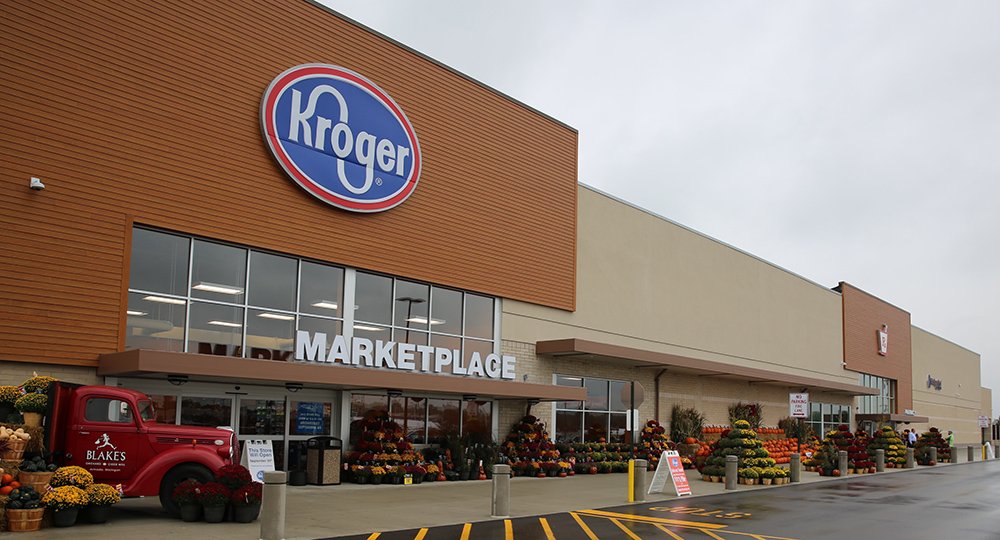
Kroger Co. (NYSE: KR) Surpasses EPS Estimates but Misses on Revenue
Kroger Co. (NYSE: KR) is a major player in the grocery and retail department sector. On June 20, 2025, Kroger reported earnings per share (EPS) of $1.49, surpassing the estimated $1.45. The company generated revenue of $45.12 billion, slightly below the estimated $45.16 billion. Despite the revenue miss, the positive EPS surprise contributed to a 10% surge in Kroger's stock price.
Kroger's adjusted EPS of $1.49 for the quarter ending May 24 exceeded Wall Street expectations, while total revenue reached $45.12 billion. The company's management maintained its full-year earnings outlook and raised its full-year revenue forecast, signaling confidence in its financial performance. This positive outlook, as highlighted by Kroger's CFO David Kennerley, surprised investors and contributed to the stock's positive market reaction.
Kroger's strategic initiatives include optimizing its store network and focusing on core operations. The company plans to close approximately 60 underperforming stores over the next 18 months while completing 30 major store projects this fiscal year. Kroger aims to accelerate new store openings in fiscal 2026, targeting high-growth areas to increase total square footage and improve average store productivity.
Financially, Kroger has a price-to-earnings (P/E) ratio of approximately 18.66, indicating the market's valuation of its earnings. The company's price-to-sales ratio stands at about 0.33, suggesting a relatively low market valuation compared to its revenue. Kroger's enterprise value to sales ratio is approximately 0.49, reflecting the company's total valuation in relation to its sales.
Kroger's debt-to-equity ratio is notably high at approximately 3.03, indicating a significant reliance on debt financing. The current ratio is approximately 0.96, suggesting that the company has slightly less than enough current assets to cover its current liabilities. Despite these financial metrics, Kroger's strategic initiatives and positive earnings outlook position it for future growth.
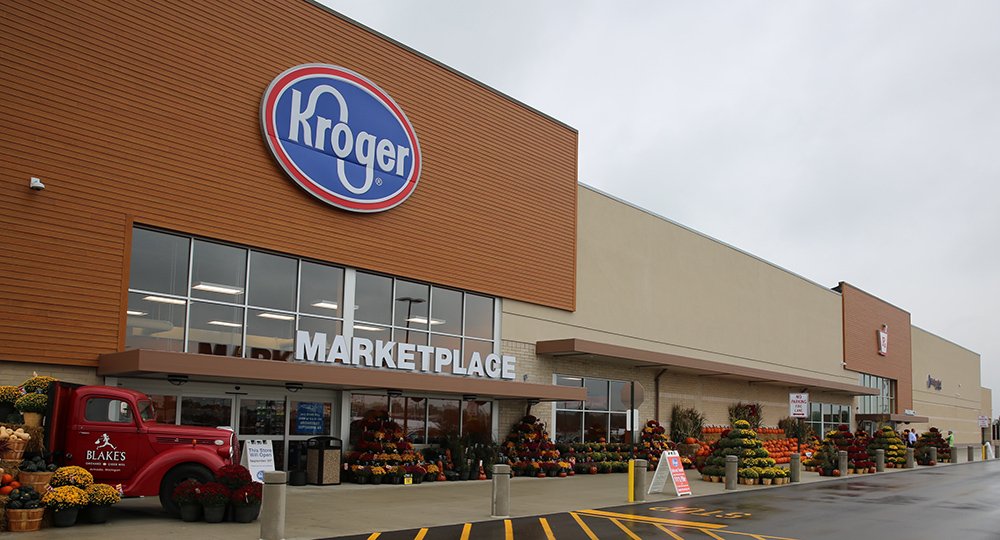
Kroger Co. (NYSE: KR) Quarterly Earnings Overview
- Kroger is expected to report an EPS of $1.44, indicating stability in its earnings.
- Projected revenue of approximately $45.3 billion shows modest growth in a competitive market.
- The stock's positive outlook is supported by a 0.7% increase and an Outperform rating from Telsey Advisory Group.
Kroger Co. (NYSE: KR) is a major player in the retail industry, known for its extensive network of grocery stores and eCommerce platform. The company is headquartered in Cincinnati and serves over 11 million customers daily. Kroger is committed to its mission of creating #ZeroHungerZeroWaste communities, reflecting its focus on sustainability and community support.
Kroger is set to release its quarterly earnings on June 20, 2025. Analysts expect the company to report earnings per share (EPS) of $1.44, a slight increase from $1.43 in the same period last year. This stability in earnings estimates is crucial as it often influences investor behavior and can impact the short-term price performance of the stock.
The company's revenue is projected to reach approximately $45.3 billion, a marginal increase from $45.27 billion a year ago. This growth, although modest, indicates a steady performance in a competitive market. Kroger's previous quarter saw adjusted earnings per share of $1.14, surpassing expectations, although sales fell short of estimates.
Kroger's stock recently saw a 0.7% increase, closing at $66.01. Telsey Advisory Group analyst Joseph Feldman has maintained an Outperform rating for Kroger, setting a price target of $73. This positive outlook reflects confidence in Kroger's ability to deliver consistent financial performance.
Kroger's financial metrics provide insight into its market valuation. The company's price-to-earnings (P/E) ratio is approximately 17.10, while the price-to-sales ratio stands at about 0.30. The enterprise value to sales ratio is around 0.47, and the enterprise value to operating cash flow ratio is approximately 11.85. These figures highlight Kroger's valuation and cash flow generation relative to its sales.
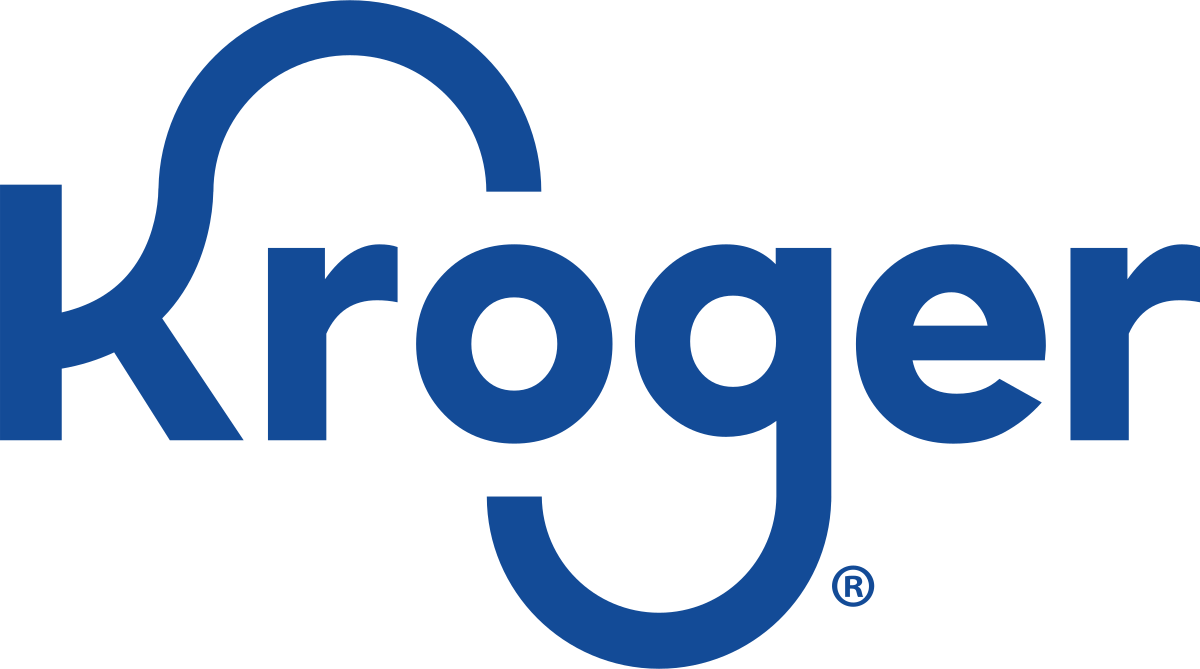
Greg Landsman's Significant Transaction in Kroger Co. Shares
- Greg Landsman engaged in a significant transaction involving shares of The Kroger Co. (NYSE:KR), valued between $250,001 and $500,000.
- Kroger is adapting to industry challenges by evolving its product offerings and refining merchandising strategies amidst strong growth in the Zacks Retail - Supermarkets industry.
- Kroger's current stock price is $66.80, with a market capitalization of approximately $44.15 billion, reflecting its significant presence in the retail industry.
On May 9, 2025, Greg Landsman engaged in a significant transaction involving shares of The Kroger Co. (NYSE:KR), valued between $250,001 and $500,000. Kroger is a major player in the retail supermarket industry, competing with giants like Walmart Inc. The company is known for its extensive grocery offerings and innovative retail strategies.
The Zacks Retail - Supermarkets industry is currently experiencing strong growth, largely due to consistent consumer demand and the integration of AI-driven omnichannel innovations. This trend is setting up major players like Kroger for long-term success. Despite challenges such as rising operational costs related to labor, store upgrades, and technology investments, Kroger is adapting by evolving its product offerings and refining merchandising strategies.
Kroger's current stock price is $66.80, reflecting a decrease of 1.02% or $0.69. Today, the stock has traded between a low of $66.12 and a high of $67.61. Over the past year, the stock has reached a high of $73.63 and a low of $49.04. This fluctuation indicates the dynamic nature of the retail market and the challenges faced by companies like Kroger.
Kroger has a market capitalization of approximately $44.15 billion, highlighting its significant presence in the retail industry. The trading volume for the day is 2,093,156 shares on the New York Stock Exchange, indicating active investor interest. As Kroger continues to navigate industry challenges, its strategic adaptations are crucial for maintaining its market position.







